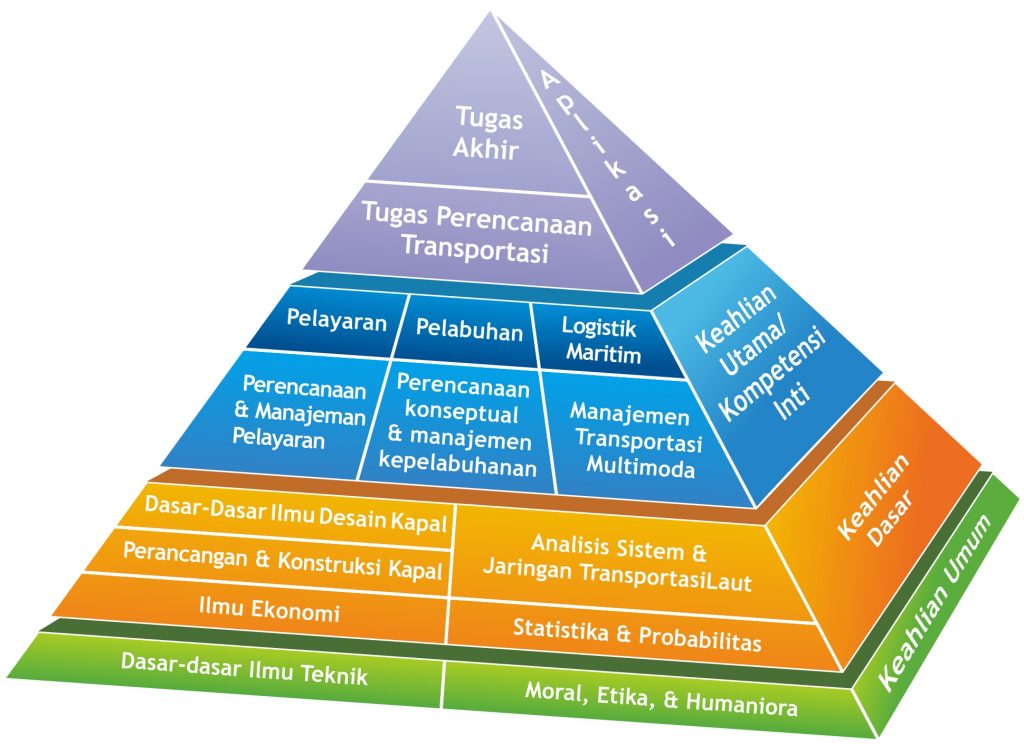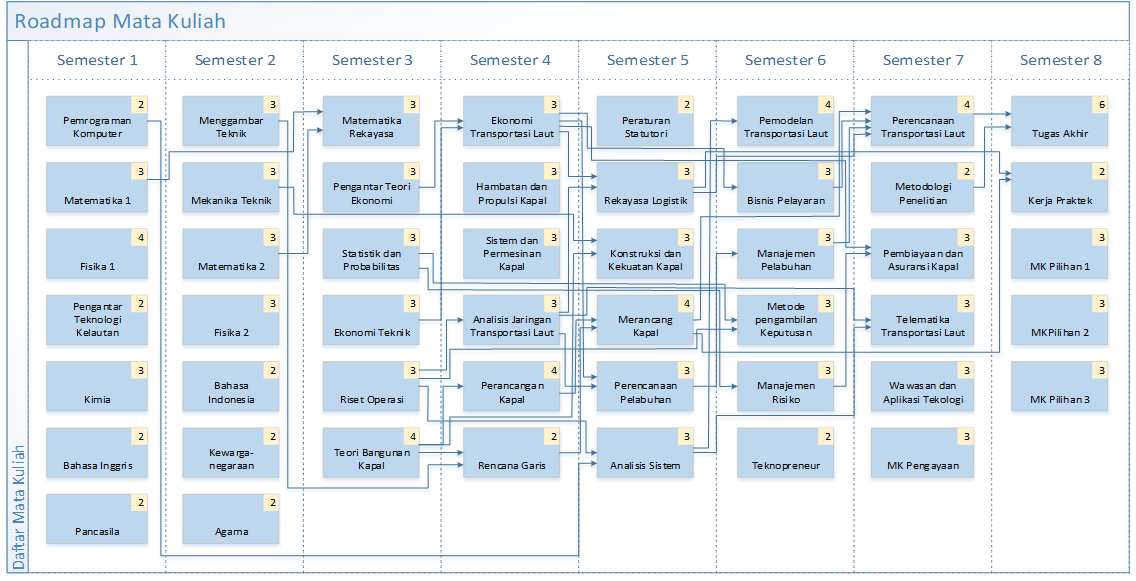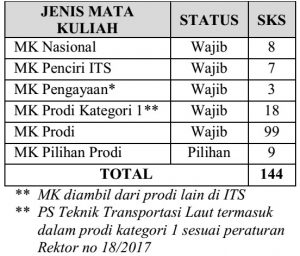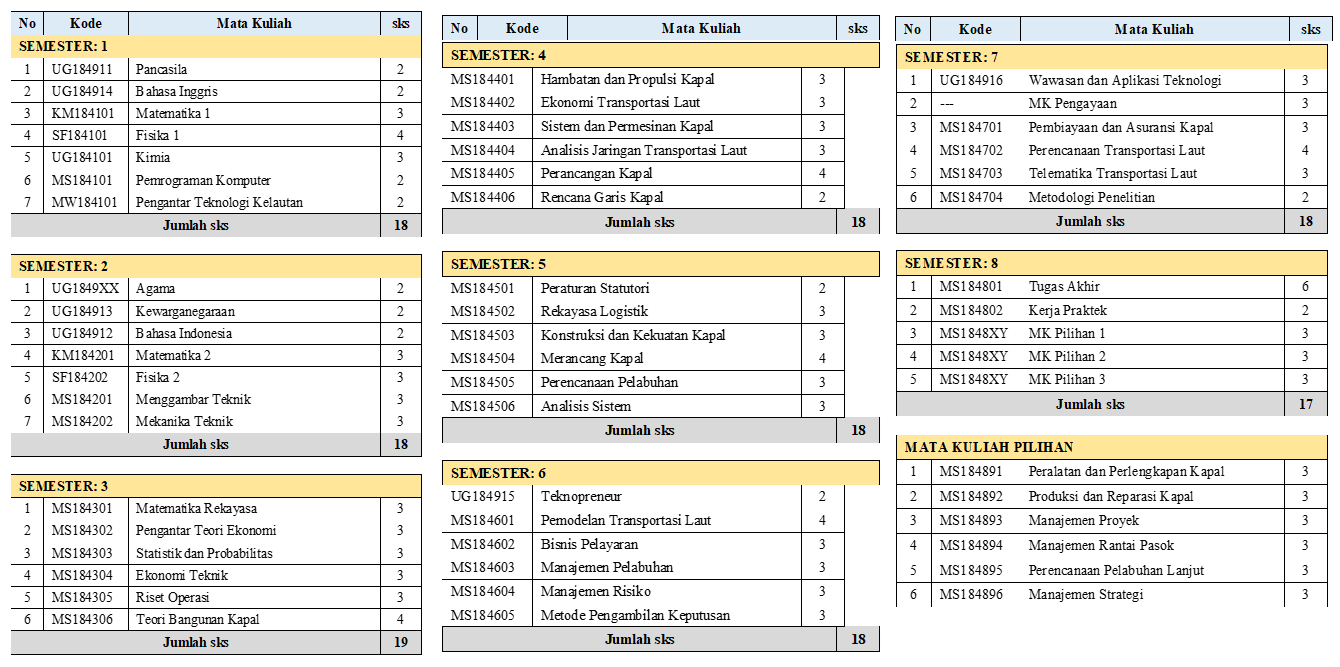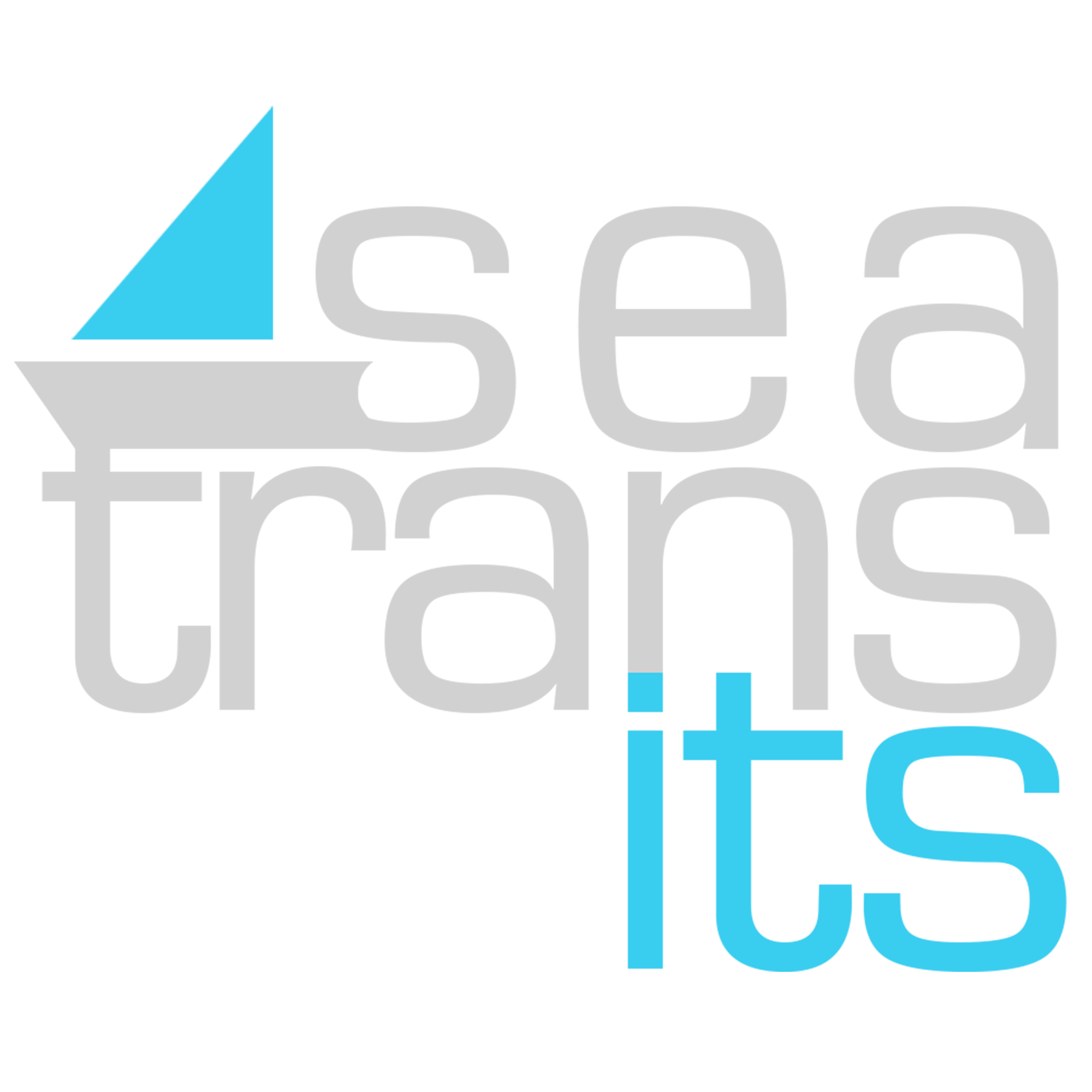In accordance with applicable regulations, the Bachelor Study Program is designed to be completed in 8 semesters (4 years) with a total load of 144 credits (semester credit units). The study period (for 8 semesters) is divided into 2 stages, namely the PREPARATION STAGE and UNDERGRADUATE STAGE. The preparatory phase includes semesters 1 and 2 with a total load of 36 credits, while the undergraduate stage covers semester 3 – 8 with a total load of 108 credits.
At the preparation stage, students are provided with general basic subjects, basic science courses, basic shipping subjects and basic economics. While at the undergraduate stage, students are provided with basic knowledge of marine transportation techniques and special subjects and expertise that are the main characteristics of the field of marine transportation.
Besides courses that are face-to-face in class, there are also courses that are Assignment and Practical in nature, as well as elective courses on Shipping, Ports, and Maritime Logistics.
